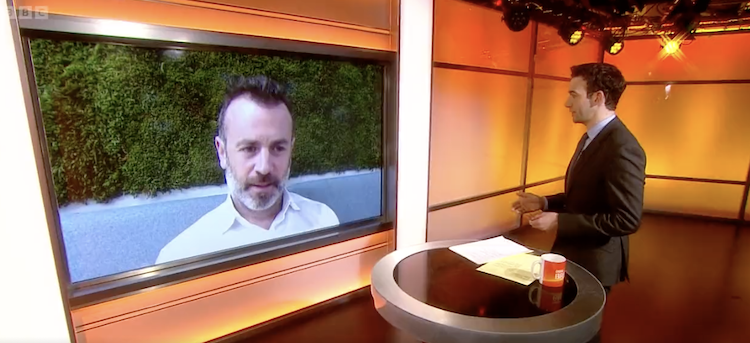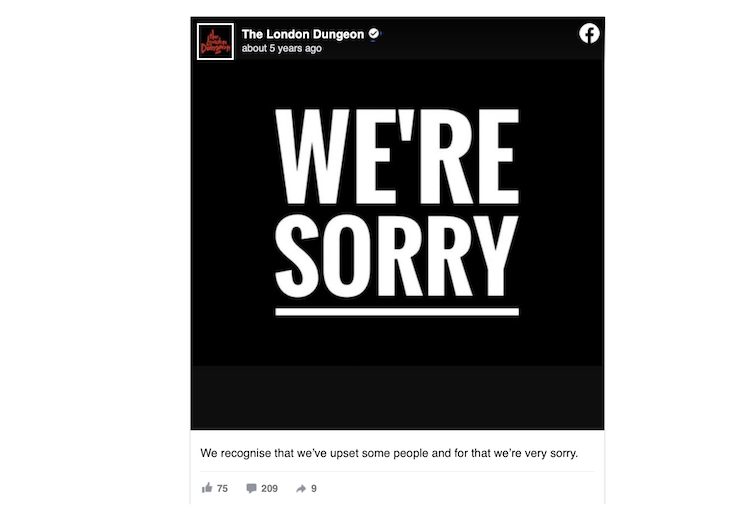
Some of the Worst PR Campaigns of All Time
When done right, a PR campaign can elevate a brand’s reputation into the stratosphere. When it’s done wrong, it can sink a reputation to the point of no return, quicker than you can say ‘Twitter.’
There’s a long list of PR campaigns that are remembered for all the wrong reasons. Whether it’s due to poor timing, lack of forethought, misguided ambitions, or complete ignorance, some public relations campaigns leave a sour taste in people’s mouths.
In this post, we’re going to dissect some of the worst public relations campaigns in history and highlight some valuable takeaways, (so your brand doesn’t end up on a list like this).
So, are you ready to shake your head and gaze in astonishment at some of the worst PR campaigns of all time? Let’s get started.
OVO Energy (2022): Warm Up Tips Get the Cold Shoulder

First up is British energy supplier OVO Energy. Founded in 2009 by Stephen Fitzpatrick, OVO Energy quickly rose from a small start-up to one of the UK’s major energy providers, purchasing SSE’s energy supply division in January 2020 for a cool £500m.
Fast forward a couple of years, and Brits were staring down the barrel of a cost-of-living crisis. Energy prices rose by more than 50%, leaving the poorest in the country facing the unenviable choice of heating or eating. Not the ideal time for an energy supplier to be sending out frivolous emails to customers with tips on staying warm in winter without turning their heating up. That’s just insensitive, isn’t it?
Insensitive or not, that’s exactly what happened at the start of 2022, when somebody at the OVO office thought it would be a good idea to do just that.
The (since deleted) blog post included in the email gave energy saving gems such as:
- Do star jumps
- Cuddle your pets
- Eat porridge
- Wear extra clothes
- Open your curtains when it’s sunny
- Keep the oven open after cooking
- Clean the house
- Challenge the kids to a hula-hoop contest
Needless to say, the advice was not warmly received. Timing is everything, and this bad PR was a poorly timed kick in the teeth from OVO.
Far be it for me to dismiss star jumps and pet cuddles as valid heat sources. But given the seriousness of the financial crisis facing millions of vulnerable Brits, the advice was tone deaf and offered nothing of value. It was almost as if the content creators were having a laugh at our expense.
OVO’s response
In the aftermath of this PR faux pas, the OVO CEO took it upon himself to make a public apology, telling the BBC:
‘It’s a ridiculous piece of advice. It should never have been written, it should never have been sent, and we should have caught it […] this kind of message is deeply unhelpful, upsetting, and I apologise. It was a bad day, we made a mistake, and we tried to put it right as soon as possible.’
The CEO publicly admitting a mistake was made, making a sincere apology and accepting responsibility without condition was smart PR, and something we don’t see enough of these days.
As PR boss Nik Govier said in response to Fitzpatrick’s apology: ‘Often people hide behind overtly manufactured and carefully crafted quotes rather than speaking up themselves to handle the situation. I think this genuine, open acknowledgement of the terrible lapse in judgement will go a long way with customers.’ And it did. OVO’s reputation didn’t suffer long-term damage and continues to thrive today.
PR Takeaway
As PR professionals, it’s our job to read the room, understand the context and make informed decisions as to how best to deal with any given situation. In this instance, somebody, somewhere, clearly misread (or ignored) the room completely. So much so that the big boss felt it necessary to step in.
In times of hardship, people are even more sensitive to what they see and hear. This was a poorly timed and bad PR campaign, but luckily the CEO was able to rescue the situation by admitting as much.
This example goes to show the positive effect that owning up to your mistakes has on public perception, when faced with a PR crisis. Although, thinking a little more before executing a communications campaign is even better.
For more on dealing with a PR crisis, read: Crisis Management in Public Relations.
The London Dungeon (2017): Did You Meme to Write That?

Valentine’s Day: A day for love, passion, romance and memes which joke about serial killers and murdered sex workers. Wait, what?
It may not be the conventional Valentine’s marketing tactic, but ‘Murder Memes’ was the chosen strategy for the team at The London Dungeon in 2017, who thought that jokes about Jack the Ripper’s victims were just what was needed to brighten up our Valentine’s Day.
The London tourist attraction was criticised for demeaning women and belittling sex workers after posting a series of memes that contained somewhat questionable jokes across its social media channels. The failed attempts at humour included: ‘What’s the difference between your job and a dead prostitute? Your job still sucks.’ and ‘Jack the Ripper just messaged. He wants to Netflix and kill.’
The result of this poorly thought-out campaign was a public execution by way of a social media backlash which saw one user label it as ‘LADbible-style misogynistic shit.’
Talk about bad PR campaigns. I’m sure the Dungeon’s public relations team were not feeling the love after this PR blunder.
The London Dungeon’s Response
In light of the negative response, The London Dungeon apologised…sort of.
What they actually said, by way of a tweet was: ‘We recognise that we’ve upset some people and for that we’re very sorry.’ This was accompanied by a meme that simply said ‘We’re Sorry’ in big, bold white text on a black background.
The apology was not well received, with many labelling it a ‘non-apology’ and calling them out for not taking ownership of the mistake. One Twitter user replied: ‘What a lame apology. So, you are sorry “people got upset”, but not for your actions? Another PR fail.’
PR Takeaway
We all make mistakes, we’re only human. But the way in which we respond to a public relations crisis is what sets the best and worst PR campaigns apart.
Unlike our previous example, in which the CEO gave a sincere public apology, The London Dungeon team opted for the ‘we’re sorry you were offended’ response, which never goes down well.
What’s more, the apology came in the form of an impersonal, lacklustre meme – because they clearly didn’t learn the valuable PR lesson on offer here. They should have taken time to understand why people were upset and constructed a thoughtful, genuine, empathetic reply.
For some examples of good Valentine’s Day PR, read: Six Valentine’s Day PR Campaigns to Get You in the Mood.
BP (2010): Adding Fuel to the Fire

The largest marine oil spill in history occurred in 2010, when an explosion at the Deepwater Horizon oil rig in the Gulf of Mexico killed 11 employees, injured 17, capsized the rig and sent huge volumes of oil into the ocean.
At the time of the incident, the Deepwater Horizon rig had been leased from Transocean (the world’s biggest oil rig contractor) by BP, who in turn hired a company called Halliburton to help operate the rig and carry out the search for oil.
Nevertheless, it was BP that was ultimately responsible for the tragedy that saw an estimated 4.9 million barrels of oil leak into the ocean over a four-month period, as several attempts to contain the flow failed.
The impact on wildlife and the environment was huge, with 8,183 birds, 1,144 sea turtles, and 109 marine mammals being retrieved (both dead and alive) by wildlife responders as a result of the spill. The total number of wildlife deaths due to the incident is estimated to be as much as 50 times more than the number of carcasses recovered.
As you can imagine, the tragic event was global news, and putting a positive PR spin on it was not an option. It was all about damage limitation. At least PR couldn’t make things worse though, right?
Wrong.
BP’s Response
As the CEO and co-founder of 1903 PR, Santiago Villegas, says in a 2021 Forbes article, ‘It can take 20 years to build a reputation and about five minutes to ruin it.’
For this reason, it’s hugely beneficial for your business to have a dedicated public relations team. But for those CEOs who don’t want to hand their public relations responsibilities over to the professionals and decide to go it alone, it’s sensible to at least run things by an expert before going public.
Former BP CEO, Tony Hayward, is a great example of a leader who should have delegated the crisis comms to somebody more qualified. He didn’t and subsequently piled a public relations catastrophe atop the environmental disaster.
- ‘What the hell did we do to deserve this?’
- ‘The Gulf of Mexico is a very big ocean. The amount of volume of oil and dispersant we are putting into it is tiny in relation to the total water volume.’
- ‘There’s no one who wants this over more than I do. I would like my life back.’
These are just a few of the words uttered by Hayward when communicating with the media – none of which took responsibility for the situation, nor showed sympathy for the loss of life as a result of the incident.
Most clueless man in America
Hayward’s poor handling of the public communications during this period is highlighted by The New York Times, which called him ‘the most hated – and most clueless – man in America.’ In fact, a prime candidate for any worst PR campaign of all time list.
Hayward and BP initially attempted to deflect the blame, saying it was Transocean and/or Halliburton who were responsible. He also tried to downplay the volume of oil that leaked.
However, after years of court cases, the company was forced to pay a $20bn civil settlement and billions in economic damages and clean-up costs. On top of this, the company pleaded guilty to 14 criminal counts, which included manslaughter and violations of various environmental acts.
This public relations nightmare cost BP dearly, and although it remains one of the largest oil companies in the world, the fall out of the incident brought the fuel giants to the brink of collapse.
PR Takeaway
There are many lessons to be learned from the mismanagement of this crisis not least the value of hiring a public relations professional to handle crisis comms.
PR is a skilled profession. It’s not an insignificant side-task that can be done by anybody. But if, like Tony Hayward, you choose to tackle public relations yourself, it’s vital that you know what you’re talking about, who you’re talking to, and how your response can be used against you.
If you don’t know the answer, then say you don’t know. It’s not a good idea to make things up, because you’ll be caught out. It’s also a bad idea to blame everybody else and refuse to take responsibility, even if others were also partly to blame.
As mentioned earlier, this case was all about damage limitation, but Hayward’s handling of the situation didn’t limit anything, it made a terrible situation worse. The London Dungeon’s meek apology is like PR gold compared to this. BP has to be one of the worst PR campaigns in recent history.
To learn about reputation management and how to avoid the mistakes made by BP, read: Reputation Management: How to Win Customers and Influence Stakeholders.






